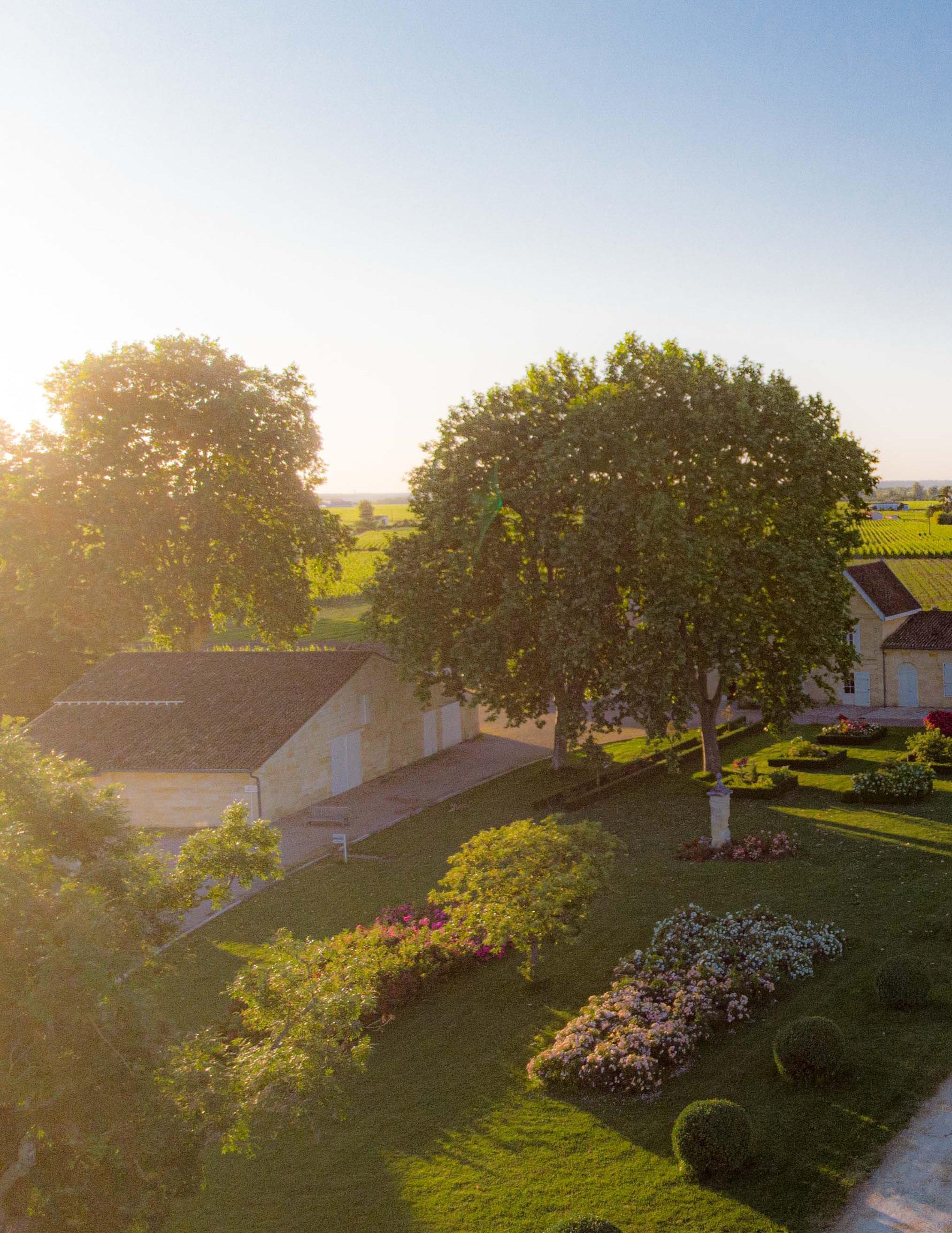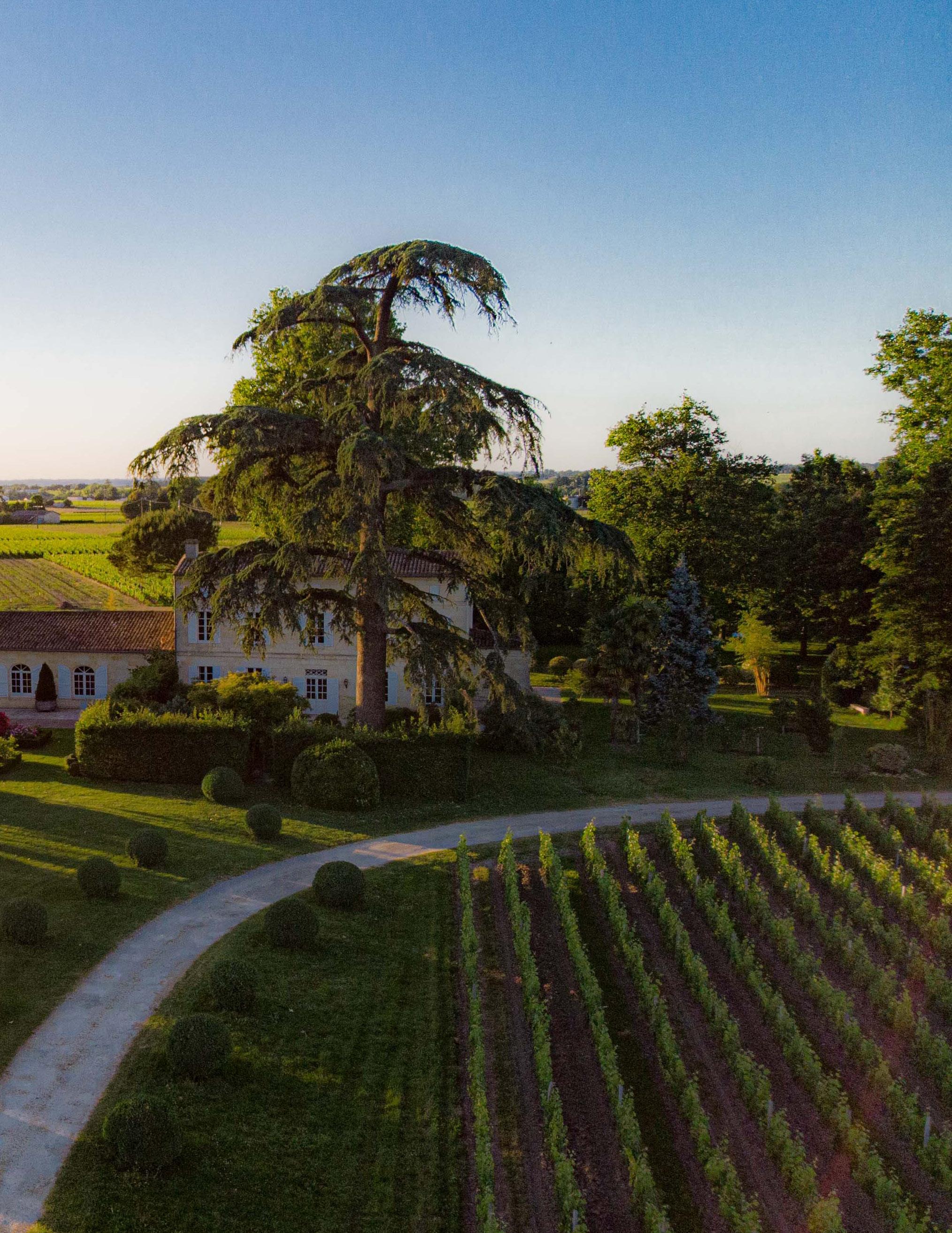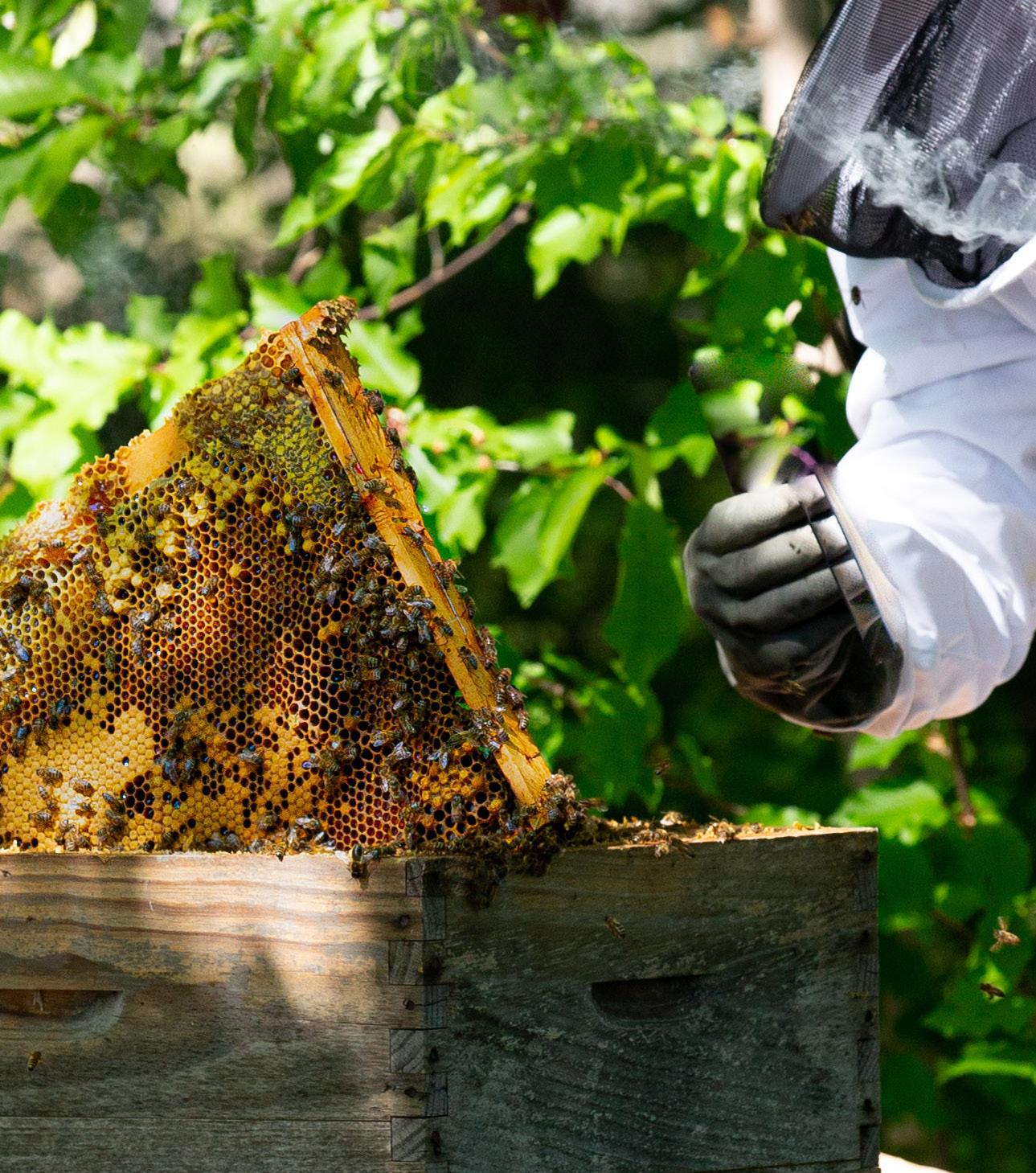
3 minute read
CHÂTEAU JEAN FAURE
from Earth Day Heroes
by gregoryvine
AOC Saint-Émilion
Château Jean Faure is an historic Saint-Émilion wine estate, owned by only six families over the past six centuries. This great stability of land tenure is a considerable asset for an estate that earned Premier Cru classification in the 19th Century. The most recent owners, Anne and Olivier Decelle, bought Château Jean Faure in 2004 to live on the property and renew their commitment to Saint-Émilion landscape. For Anne and Olivier, this meant immediately eliminating all pesticides and embracing environmentally-friendly agriculture. Jean Faure attained official organic farming certification in 2017 and biodynamic certification in 2020. to preserve biodiversity and achieve an environmental balance between people and nature.

Marie-Laure Latorre joined Jean Faure as General Manager in 2018. An agricultural engineer and enologist by training, Marie-Laure comes from a Bordeaux winemaking family and wanted to combine her extensive experience in the wine trade with a commitment to organic and biodynamic farming. Driven by a passion for nature, Marie-Laure is helping Jean Faure adopt the healthiest methods possible in order to preserve biodiversity and achieve an environmental balance between people and nature.

“For Jean Faure, it is about enhancing what people do not see, respecting the harmony of the landscape and integrating the estate into its cultural heritage in the village of SaintÉmilion,” Marie-Laure observes. Preservation and balance start with healthy vines and soils. Jean Faure has eliminated all herbicides and synthetic pesticides (in favor of all-natural remedies such as copper and sulfur, which are further reduced as soil health improves). The estate further minimizes environmental impact by recycling as much as possible and through a continuous reduction of energy and water consumption. Marie-Laure also credits early adoption of deep rooting for the health of the vineyard. In 2004, with the help of Lydia and Claude Bourguignon, Jean Faure made it a priority to increase microbial life in the soils as well as the biodiversity of flora and fauna, measures that the team links directly to higher quality fruit and maturation.

Strong Consumer Response
“Bringing together a whole team of different generations around the same project has undoubtedly been one of the biggest, but also one of the most beautiful challenges that we have overcome,” Marie-Laure notes. Official organic farming certifications such as HVE 3/ISO 14000 and Biodyvin have supported strong consumer enthusiasm and access to new markets. Marie-Laure finds that wine lovers are increasingly demanding ethically-made products, creating real commercial opportunity for certified wines. Ultimately, the wine itself makes the strongest case for organic and biodynamic practices. Marie-Laure credits responsible agriculture for the freshness of the estate fruit and responsible winemaking for great refinement. For example, she attributes initiatives such as the removal of added sulfur from most vinifications results in a greater purity of the aromas.

The Key to Success
Château Jean Faure 2018 Jean Faure is passionately committed to organic winemaking and encourages others to adopt a long-term perspective to appreciate all the benefits and justify the investment. “Organic farming is often seen as a form of agriculture which leads to low yields through susceptibility to disease,” Marie-Laure observes. “For Jean Faure, if we have vintages that are low in yield, we can still be very happy. All the measures we have put in place have allowed the vines to develop natural resistance and immunity. In 2020, we saw record returns! For us, this is undeniable proof that we can combine ecological convictions and still overcome economic constraints.” So, what is the key to success at Jean Faure? In Marie-Laure’s experience, there are no shortcuts; everyone on the winery team must be on board to work hard and make the environment a tangible reality at the center of their company’s future.











